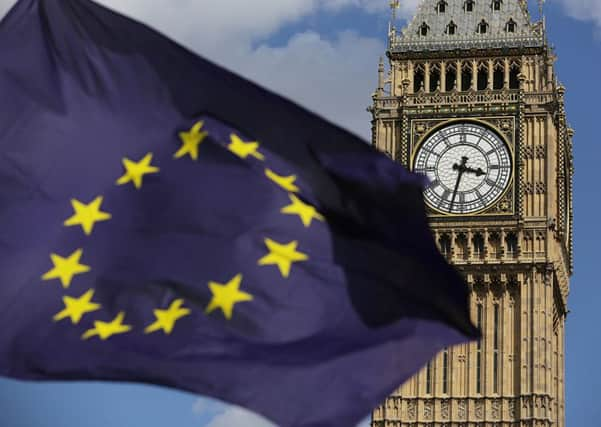Sir Andrew Cook: Six months after Brexit, the reasons to be fearful


I’m sorry to disappoint you, but we can’t. Danger is everywhere: not so much the danger of being blown up by a religious extremist. Rather, it is financial danger which lurks menacingly, and that danger could easily become a disaster.
Britain’s manufacturers rely on imported raw materials, almost all denominated in US dollars. These have increased in price by 20 per cent because of the post-referendum devaluation. They also rely on imported components from Euro-land: these too have risen 20 per cent for the same reason. It is nonsense to say our exports are more competitive. We can’t compete on price anyway: the Chinese, Indians and Turks are all miles cheaper. No, we compete on quality and reliability. The world pays a fixed premium for this. The price of that premium has not risen, yet the cost of achieving it has.
Advertisement
Hide AdAdvertisement
Hide Ad“But surely”, you say, “we are spending lots of money in this country, improving our infrastructure. Doesn’t that create demand for British-made goods? All these new trains; they alone are worth billions, aren’t they?” Again, I must disappoint you. Billions those trains may cost, but they are almost all foreign-made. The new Japanese trains being trumpeted for the King’s Cross to Leeds line and many other trunk routes are mainly imported as ‘flat-packs’ from Japan and merely put together in Britain. Much the same goes for the Spanish and Swiss-made trains on order for the ‘Northern Powerhouse’.
“At least we have put two fingers up to the Brussels bureaucrats”, you might say. Yes indeed, and they have responded in kind. Continuing membership of the vital single European market is looking increasingly uncertain. Doubt about Britain’s future in Europe is making customers in France and Germany look elsewhere for suppliers. “What are you Brits doing?” they ask in dismay. “Do you want to destroy your economy?”
Worryingly, the banks are beginning to vote with their feet. Banks can be moved comparatively easily. They need only people, desks and computer systems. Leases and options are being taken out on skyscrapers in Frankfurt, Amsterdam and Paris. Singapore flourishes increasingly. Bankers’ families, no strangers to moving countries as a normal part of their lives, are checking out houses and schools in the wealthier suburbs of these cities. “We hate bankers!” you say. Maybe: but banking and financial services create huge revenue for the British Treasury. High-end London housing generates large numbers of jobs in the service industry. You may dislike these people, but the country needs them.
Are you beginning to see what I mean?
Older readers will remember the 1970s and the ‘balance of payments crisis’. This was a financial condition caused by Britain importing more than it exported. It caused the pound to spiral downwards, inflation to soar and the economy to suffer. It created ‘stagflation’ – a stagnant economy coupled with constant increases in the cost of living. The only crumb of comfort was a booming London shopping ‘industry’. Oxford Street, stuffed with cheap tat, became known as the ‘Souk of Europe’.
Advertisement
Hide AdAdvertisement
Hide AdBritain still imports much more than it exports. Our trade gap is wider than ever. The only reason the balance of payments is not a continuing problem has been massive inward investment from overseas, in factories and funds, prompted primarily by three British features: our flexible labour force, stable currency, and membership of the EU. Now ask any fund manager what has happened to his overseas investment stream since June 23, and they’ll tell you it’s collapsed. Flexible labour? Observe the almost daily fiasco caused by Luddite unions on Southern Railway. Stable currency? The pound is down 20 per cent since June 23. Membership of the EU? I don’t need to answer.
“Didn’t the ‘Leave’ campaigners think about this?” you ask. If they did, they didn’t want to say so, because it damaged their bogus case to vote ‘Leave’. And having won, they have shown themselves unfit to govern. Take the principal campaigner, Boris Johnson: his witty charm and cleverness may have carried him through Eton, Oxford and the world of politics, but this is of limited use in the real world.
Thanks to Mr Johnson and his acolytes, Britain’s economy is in grave danger. Our Prime Minister is ignored in Europe. Our prestige is evaporating. Our industrialists are fearful. Our bankers are looking for fresh pastures, and pangs of doubt are assailing many who voted ‘Leave’. Well they might, as it is they who will suffer most. They should enjoy their Christmas turkey. It may be the last they can afford.
Sir Andrew Cook is chairman of Yorkshire-based William Cook Holdings Limited. He was treasurer of the Conservatives In campaign and is Yorkshire’s biggest Tory donor.